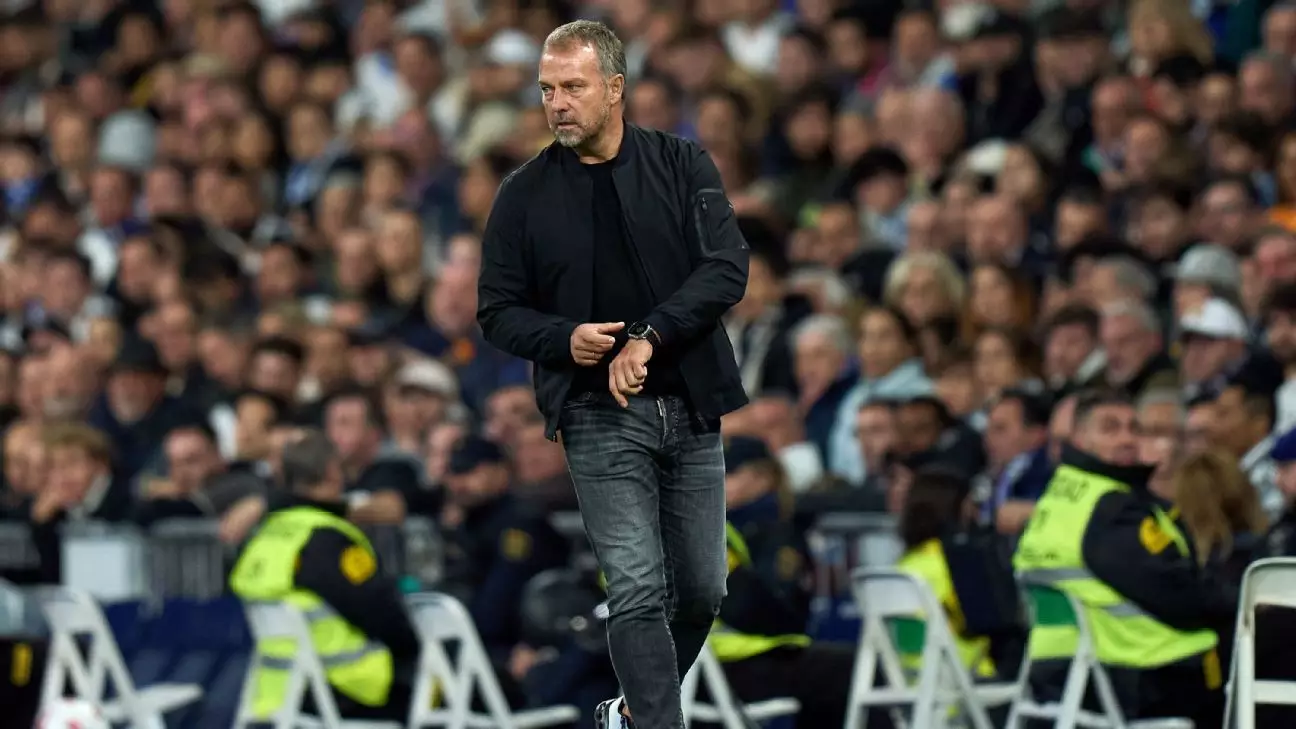The recent assertion by Hansi Flick, the head coach of FC Barcelona, that his team has not usurped Real Madrid as the favorites to clinch the LaLiga title post their emphatic 4-0 victory in El Clásico, ignites a thoughtful examination of the current landscape of Spanish football. While Barcelona’s performance under Flick has been remarkable, with ten wins out of eleven and a six-point cushion at the top of the league, it is crucial to delve deeper into the implications of such statements and the broader context of the ongoing season.
Flick’s insistence on the unpredictability of the league resonates well within the realm of football where fortunes can shift dramatically in the blink of an eye. Expressing a grounded approach, he emphasized, “There is a long, long way [to go],” reminding fans and analysts alike of the volatility inherent in sports. In just a few weeks, the narrative surrounding the title race can alter drastically based on injuries, player form, and even external factors like weather conditions, as highlighted by the recent floods in Spain which postponed Madrid’s game against Valencia.
Barcelona’s early season form has undoubtedly surprised many, and it would be easy for both fans and pundits to speculate that they are back as league favorites. However, Flick raises an essential point about maintaining momentum and not getting carried away. “A lot of things can happen that we don’t expect,” he reiterated, encapsulating the ethos required for sustained success in a competitive league like LaLiga.
Looking ahead to the impending clash against Espanyol—a fixture marked by passion and rivalry—Flick is acutely aware of the expectations that come with a derby match. His thoughtful acknowledgment of the hurdles ahead reflects the mindset required for teams aiming to secure silverware. “It’s very important to give 100% like normal,” he stated, emphasizing focus, intensity, and quality.
The potential return of key players like Frenkie de Jong, Dani Olmo, and Gavi adds an intriguing layer to Barcelona’s tactical setup. Their previous contributions, even if short-lived, invigorating the squad with depth and skill. Hunting for that perfect balance between preserving their on-form players and reintegrating returning stars is a delicate dance, and one that Flick seems well-prepared to navigate.
Adding to the complexity of this footballing narrative are the recent tragic events in Spain due to severe flooding, which not only postponed matches but also cast a shadow over the sporting landscape. Flick’s empathy for those affected shines through in his remarks about the disasters, underscoring a sense of community and responsibility that transcends the realm of football. He reflected on the tragedy, stating, “If I could make the decision maybe I would [postpone all the games] because it’s a tragedy for this region, also for Spain.”
This perspective highlights how sports and real-life events are inextricably linked. While football often serves as an escape for many, the human element reminds us that there are greater concerns at play. Flick’s suggestion that the league should have considered halting all competitions perhaps indicates his prioritization of human value over competitive outcomes, a refreshing stance amid win-at-all-costs mentalities sometimes prevalent in sports.
Flick’s philosophy is worth noting as Barcelona embarks on their journey through the latter stages of the LaLiga campaign. As they prepare for crucial matches including the local derby, his focus on practical preparation and emotional awareness can serve as a microcosm of the balance required in high-stakes football. By prioritizing a measured approach rather than yielding to the euphoria of victory, Flick ensures that his squad remains grounded—a principle that might just underpin a successful season for Barcelona. As the narrative unfolds, the key for each player and coaching staff will be to remain adaptable and vigilant, for the road ahead is long, winding, and filled with both challenges and opportunities.
